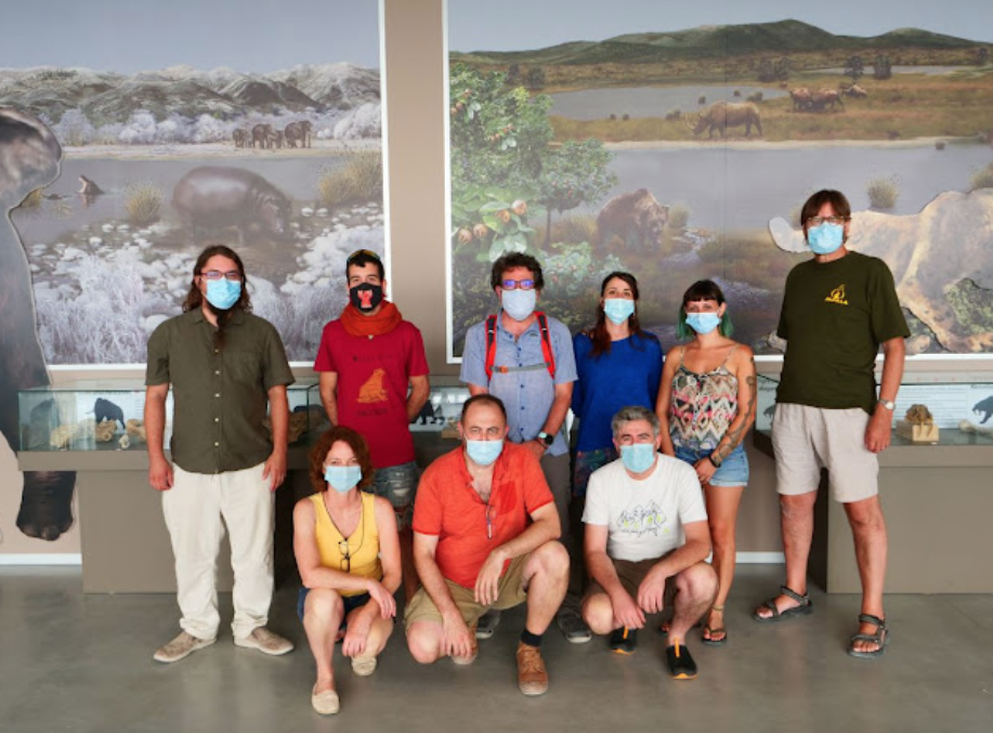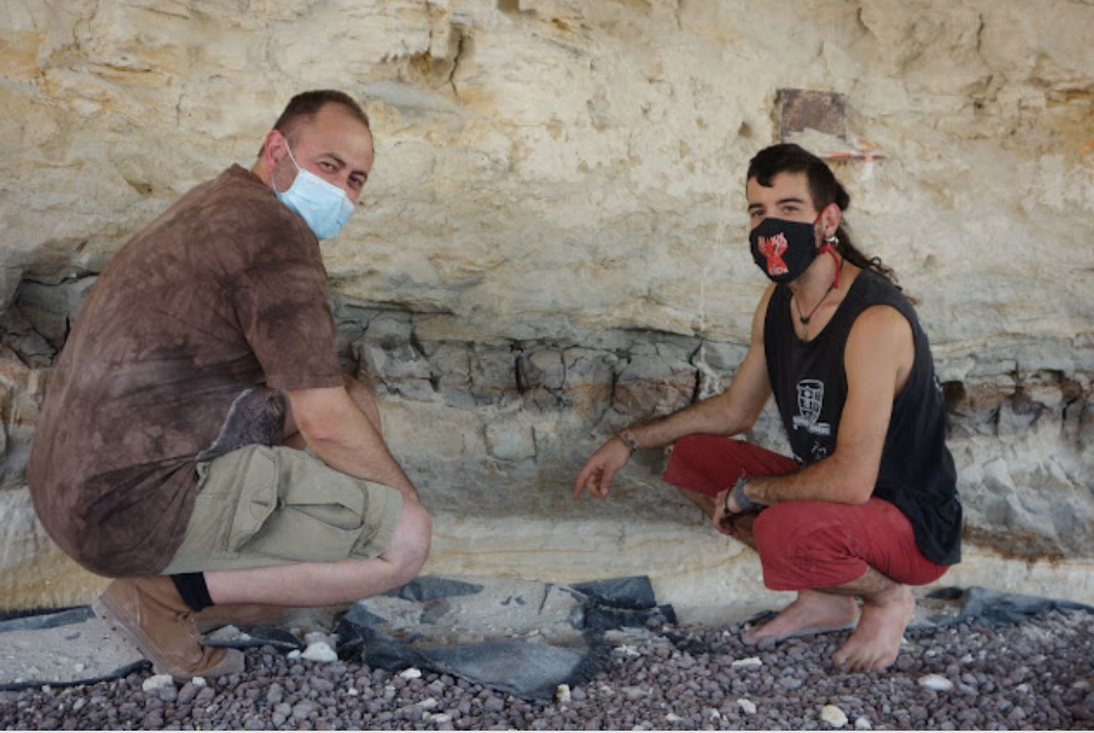THE FIRST EUROPEAN POPULATIONS WERE CAPABLE OF ADAPTING TO CLIMATE CHANGE AND NEW HABITATS 1.4 MILLION YEARS AGO
The study is led by Christian Sánchez-Bandera, researcher from the IPHES and former Erasmus Mundus student from the URV university
Successive climate changes are known to occur over time. One of these changes took place some 1.4 million years ago, with a shift from a warmer and more humid environment, to a colder and more arid situation. This evolution is very clearly recorded in the archeological-paleontological sites of Barranco León and Fuente Nueva 3, in the Orce Archeological Zone (Granada). This study of thousands of fossil amphibian remains has enabled to identify this event, thanks to the presence/absence of these animals in the deposits, which provides numerous clues about the climate and the landscapes characterizing each period.
This evidence from Orce, dated to 1.4 million years ago, provides the oldest indication of a human presence on the European continent. An interdisciplinary team, led by the University of Granada (UGR) and the Catalan Institute of Human Paleoecology and Social Evolution (IPHES) of Tarragona, has managed to reconstruct the evolution of the habitats and climates in which the first human groups lived. This is established in an new paper published by the prestigious magazine Quaternary Science Reviews, led by first author Christian Sánchez-Bandera; researcher at the IPHES, graduate student from the Erasmus Master Mundus in Quaternary Archeology and Human Evolution of the Rovira i Virgili University (URV) and technician in sediment laboratory management of the IPHES, employed in the framework of the Youth Occupation program and the European Social Fund 2014-2020, thanks to the grant awarded by the SOC (Servei d’Ocupació de Catalunya, Generalitat de Catalunya). In addition, this study has been carried out as part of the ORCE Project, financed by the Andalusian Government and coordinated by Juan Manuel Jiménez-Arenas, Professor from the Department of Prehistory and Archeology of the University of Granada (UGR).
The research is based on the analysis of small skeletal remains from amphibians and reptiles recovered in the sites of Barranco León and Fuente Nueva 3, including frogs, toads, lizards and snakes; which are very significant for reconstructing climatic settings and their resulting landscapes. Moreover, new stratigraphic information provided by Oriol Oms, geologist at the Autonomous University of Barcelona (UAB), has facilitated the progress of this research by providing new information obtained from the different levels composing the deposits.
All of the results obtained from the two sites studied, Barranco León and Fuente Nueva 3, indicate that the first populations of Europe thrived in different environmental contexts. A warm environment that was shifting towards increasingly colder and arid conditions is now registered at the Barranco León site some 1.4 million years ago. Meanwhile, at Fuente Nueva 3, the maximum aridity and cold registered some 1.3 million years ago is observed to have later oscillated towards more favorable, humid and warm conditions. This indicates that the oldest human populations on the European continent were able to adapt to the changing environmental conditions taking place during the Lower Pleistocene and to cope with different environmental contexts.
Reference
Sánchez-Bandera C., et al., New stratigraphically constrained palaeoenvironmental reconstructions for the first human settlement in Western Europe: the Early Pleistocene herpetofaunal assemblages from Barranco León and Fuente Nueva 3 (Granada, SE Spain), Quaternary Science Reviews (2020).



